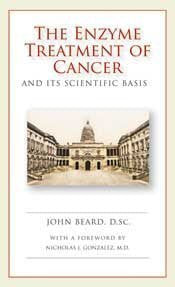-
The Enzyme Treatment of Cancer
New Spring Press
-
$115.88
-
is back-ordered. We will ship it separately in 10 to 15 days.
-
-
Description
In 1902, the scientist John Beard, at the time Professor at the University of Edinburgh, proposed that the pancreatic enzyme trypsin represents the body's primary defense against cancer and would be useful as a cancer treatment. Despite his documentation and reputation - he was nominated for the Nobel Prize in 1906 for his work in embryology - most cancer experts rejected Beard's thesis outright. However, a number of physicians concluded that Beard might be right, and employed pancreatic enzymes in the treatment of patients diagnosed with advanced cancer, often with remarkable results as reported in the conventional scientific literature. These successes provoked a heated debate about the therapy that lasted right through the first decade of the 20th century. In 1911 Beard published The Enzyme Treatment of Cancer and Its Scientific Basis, outlining his hypothesis, his decades of research and the compelling results. Though published to some very positive reviews, the book was soon forgotten as the scientific community enthusiastically latched on to Madame Curie's claim that radiation represented a simple non-toxic cure for cancer. It would be years before scientists realized radiation cured few cancers and was quite toxic - Madame Curie herself died as a result of her exposure to uranium - but by that time, Beard was dead and forgotten. Though in his lifetime the scientific community never embraced his ideas about cancer - he died in relative obscurity in 1924 - in recent years, evidence from molecular biology and stem cell research increasingly confirms many of Dr. Beard's fundamental precepts. In 2010, nearly 100 years since publication of this book, it is time Beard's work be reread. With billions of dollars spent in recent decades on cancer research with only slight success, Beard's thesis warrants a thorough reconsideration.

